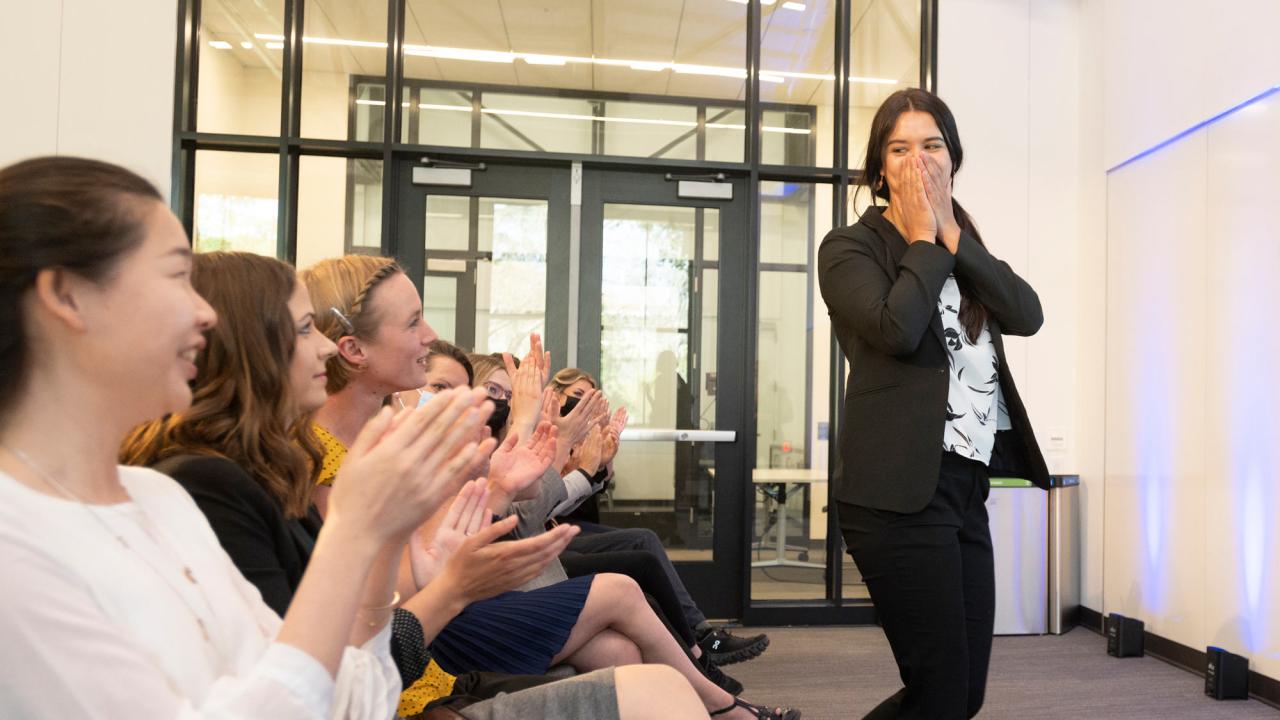Quick Summary
- Ph.D. student pitches sustainable way of drying food
- See all Grad Slam results, including People’s Choice
- Next up: Dien represents UC Davis in UC Grad Slam
Watch the complete program above. Alice Dien’s winning presentation comes on at the 37:30 mark.
Biological systems engineering Ph.D. student Alice Dien won the 2022 UC Davis Grad Slam with her 2-minute, 54-second presentation on her research into a new, sustainable way of drying food, “Cooling Down With the New Hot Air: The Future of Drying in Agriculture.”
UC GRAD SLAM
Alice Dien will go up against the winners from the other nine UC campuses, Friday, May 6, time to be announced. A livestream will be available for viewing here.
Jean-Pierre Delplanque, vice provost and dean of Graduate Studies, as master of ceremonies, opened the program with an explanation: “What we’ve done here is challenge graduate students to take literally thousands of hours of research and compress them into three minutes ... and to make it accessible to a nonspecialist audience.”
Thirty-seven master’s and Ph.D. students entered the campus Grad Slam by submitting video-recorded presentations (three minutes or less with no more than one slide). Volunteer faculty and staff judges reviewed the recordings in a qualifying round, narrowing the field to 10 for the campus final, held Wednesday (April 6) in Walker Hall, home of the new Graduate Center.
Six new judges chose all the winners except one, the People's Choice, decided by the audience of approximately 175 people (in person and online).
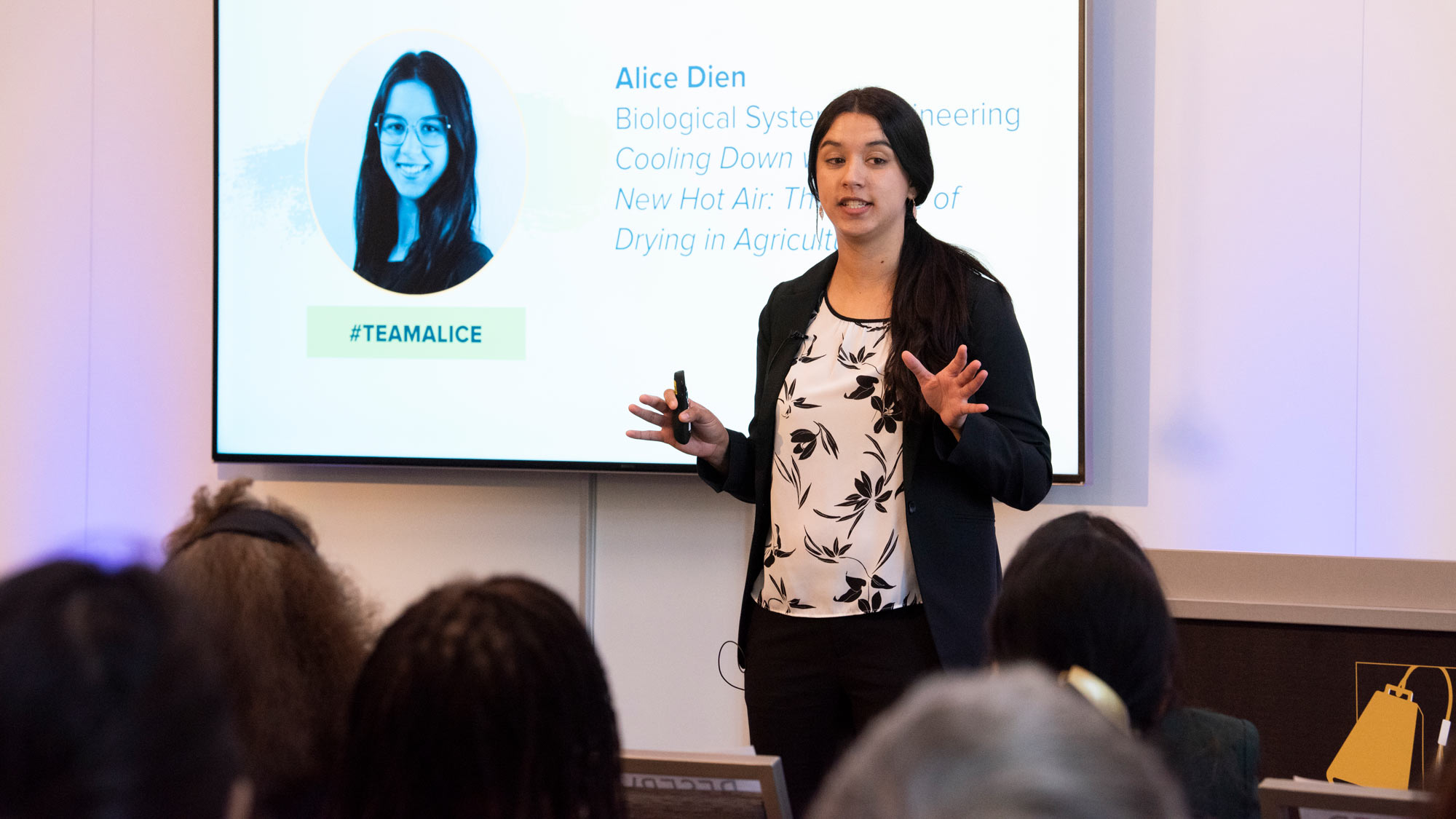
We can relate
Dien started with a question no doubt on a lot of people’s minds: “Who else was shocked by the price of their energy bill in January? At first I thought I had left the oven on for a week or something!
“But then I found out that natural gas prices have almost doubled since last year. Great. First it was the gasoline, now it’s the natural gas. Do you know what’s next? Food.”
Dien studies energy use in making food, specifically, she said, one of the most energy-intensive processes: drying.
The desiccant solution
“If you had a cup of coffee this morning, or if you’ve ever had almonds, or walnuts, or even just rice, you can thank drying,” Dien said. “Without it, all these products would get spoiled within one week.”
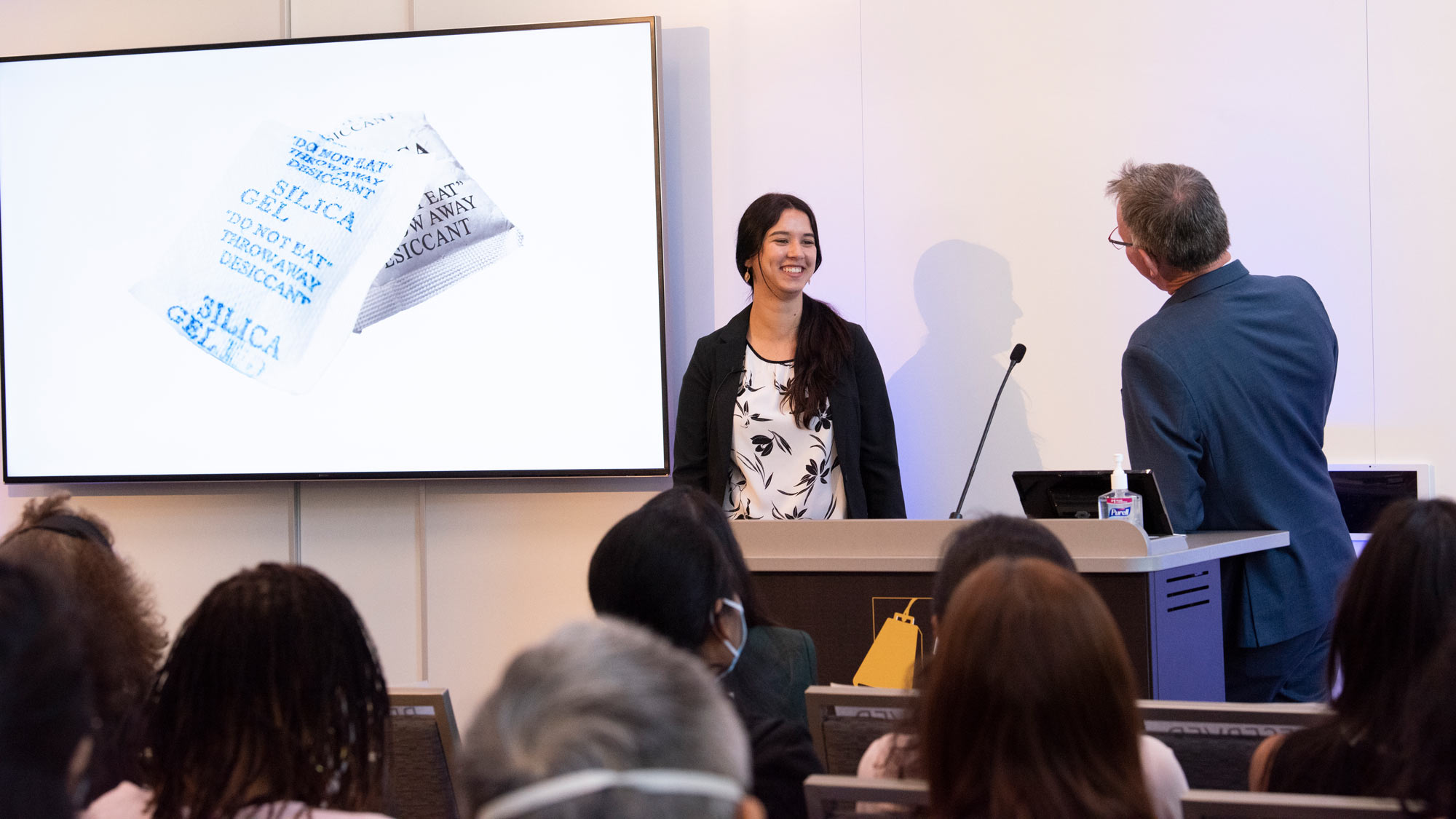
She then showed a slide of packets of silica gel, a desiccant, or drying agent, often packaged with food and other products (with the warning “do not eat”) — explaining she is designing a system that uses desiccants to dry food cheaper and with less harm to the environment.
No drying with heat, no burning natural gas to make the heat, she said. Instead, she is drying food with what she calls, in the title of her presentation, “the new hot air,” which is dry air made from desiccants and fans, and powering the fans with electricity generated from less carbon intensive fuels or, better yet, renewable energy like solar.
What Can I Do About Climate Change? ‑— Kat Kerlin, Strategic Communications’ environmental science writer, blogs about Alice Dien’s winning Grad Slam presentation.
Dien not only took first place but also earned the Public Impact Prize, given by the Office of Public Scholarship and Engagement, a Grad Slam sponsor. In addition, she earned a “Global Education for All” designation from Global Affairs, recognizing the global impact of her project.
Other sponsors: Office of Research and Graduate Studies’ GradPathways Institute for Professional Development.
The complete results
- 1st place ($2,500) and Public Impact Prize — Alice Dien, M.S., Ph.D student in biological systems engineering, College of Engineering, for “Cooling Down With the New Hot Air: The Future of Drying in Agriculture” (Global Education for All)
- 2nd place ($1,500) — Savannah Free, Ph.D. student in integrative genetics and genomics, College of Biological Sciences, for “Partners in Crime: Tumor Cells and Platelets”
- 3rd place ($750) — Paige Kouba, M.S., Ph.D. candidate in ecology, College of Agricultural and Environmental Sciences, for “Climate Change Time Machine: Sending Trees 50 Years Into the Future” (Global Education for All)
- People’s Choice ($500) — Andrea Michelle Guggenbickler, M.P.H., Ph.D. student in public health, School of Medicine, for “Let’s Talk About Sex ... Education”
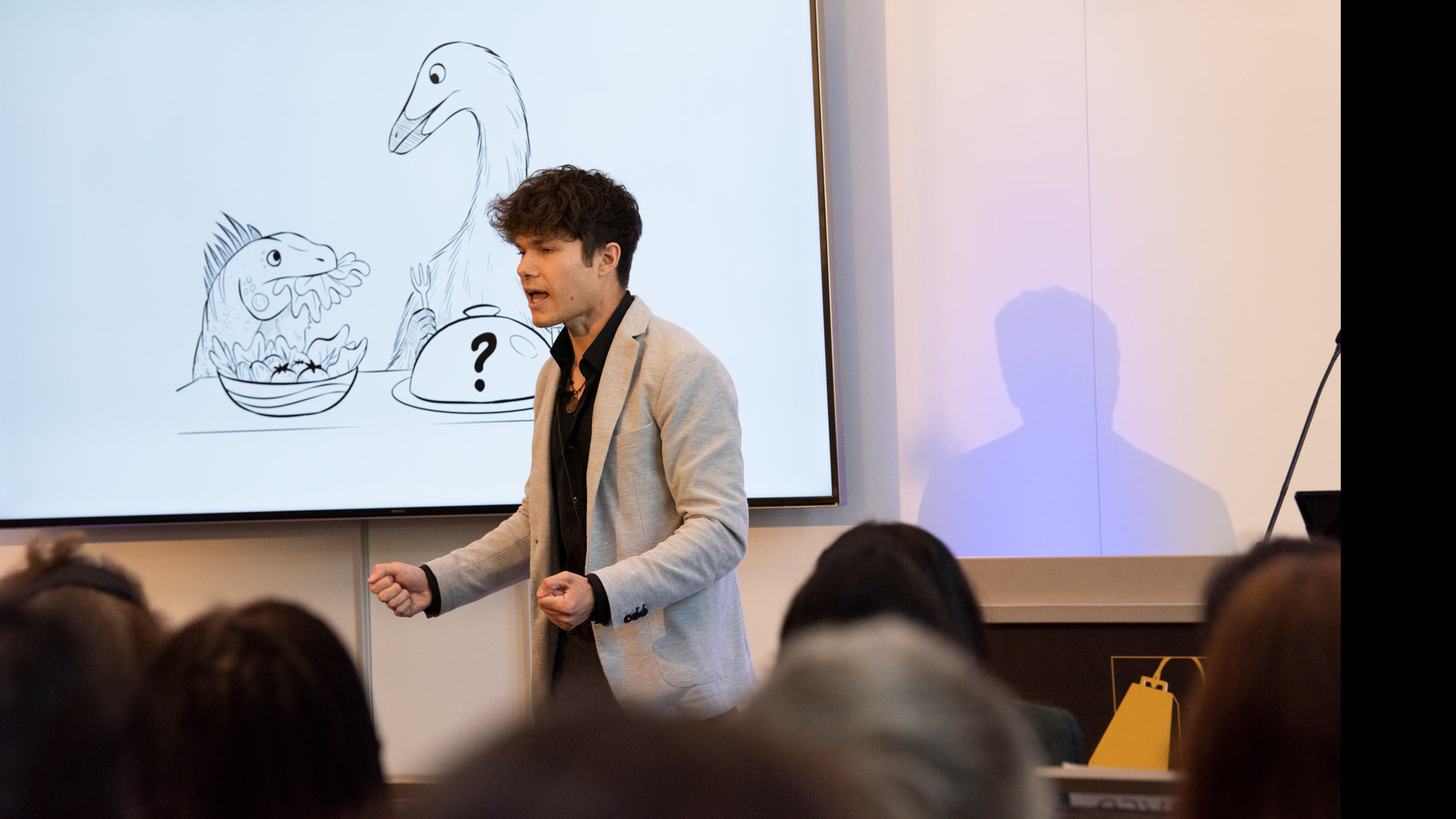
The other competitors:
- Heather Barr, Ph.D. student in public health sciences, School of Medicine — “The Impact of Pets on the Feelings of Loneliness: Can You Pet Yourself Happy?”
- Benjamin Faulkner, Ph.D. student in geology, College of Letters and Science — “The Salad Days of Reptiles.”
- Lindsey Felth, Ph.D. candidate in pharmacology and toxicology, College of Agricultural and Environmental Sciences — “How Do We Make Opioids Safer?”
- Lo-Wei Lin, M.S., Ph.D. candidate in pharmacology and toxicology, College of Agricultural and Environmental Sciences — “Look Out! The Smoky Orange Sky Is Harmful to Your Skin”
- William Turner IV, Ph.D. student in atmospheric science, College of Agricultural and Environmental Sciences — “El Nino and the Transatlantic Slave Trade” (Global Education for All)
- Jiahan Zou, M.S., Ph.D. candidate in biological systems engineering, College of Engineering — “Novel Cooling Media: Cooler Than Ice” (Global Education for All)
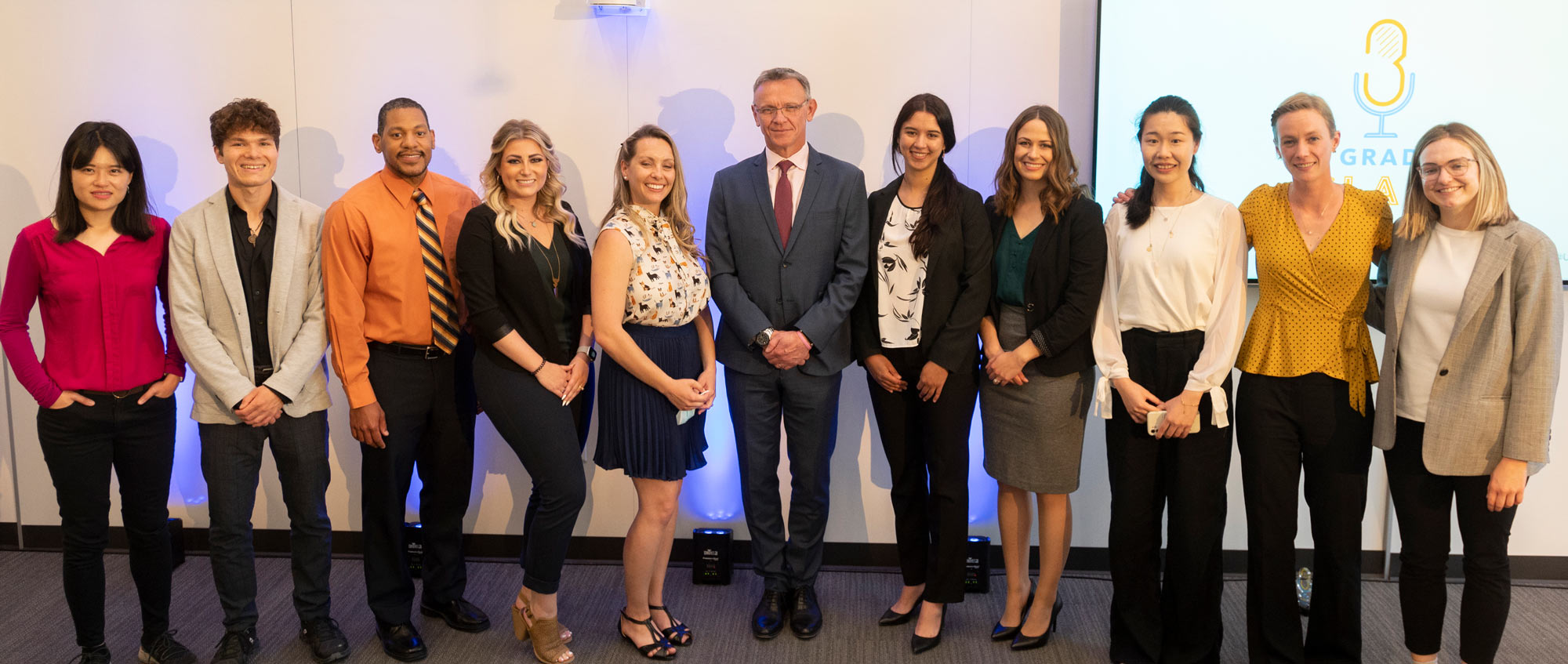
JUDGES FOR THE CAMPUS FINAL
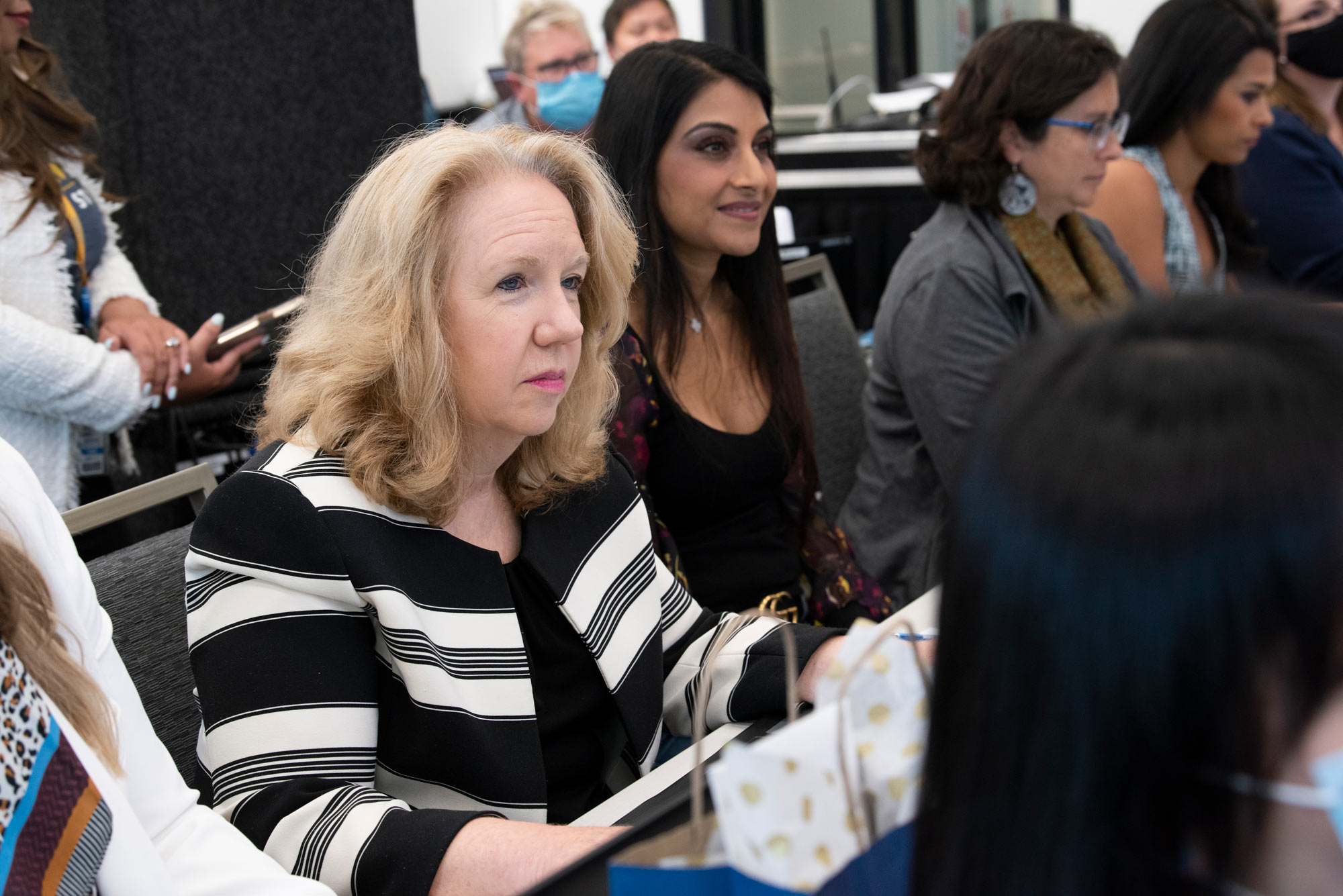
- Mary Croughan (pictured), UC Davis provost and executive vice chancellor
- Andrea Flores ’10, anchor-reporter, KCRA 3 Television
- Dawnté Early ’05, M.S. '08, Ph.D. ’11, president and CEO, United Way California Capital Region
- Sarah McCullough, Ph.D. ’13, associate director, UC Davis Feminist Research Institute
- Stacey Muse, director of engagement, UC Davis Public Scholarship and Engagement
- Rinki Sethi ’04, vice president and chief information security officer, Bill.com
Media Resources
Dateline Staff: Dave Jones, editor, 530-752-6556, dateline@ucdavis.edu; Cody Kitaura, News and Media Relations specialist, 530-752-1932, kitaura@ucdavis.edu.
